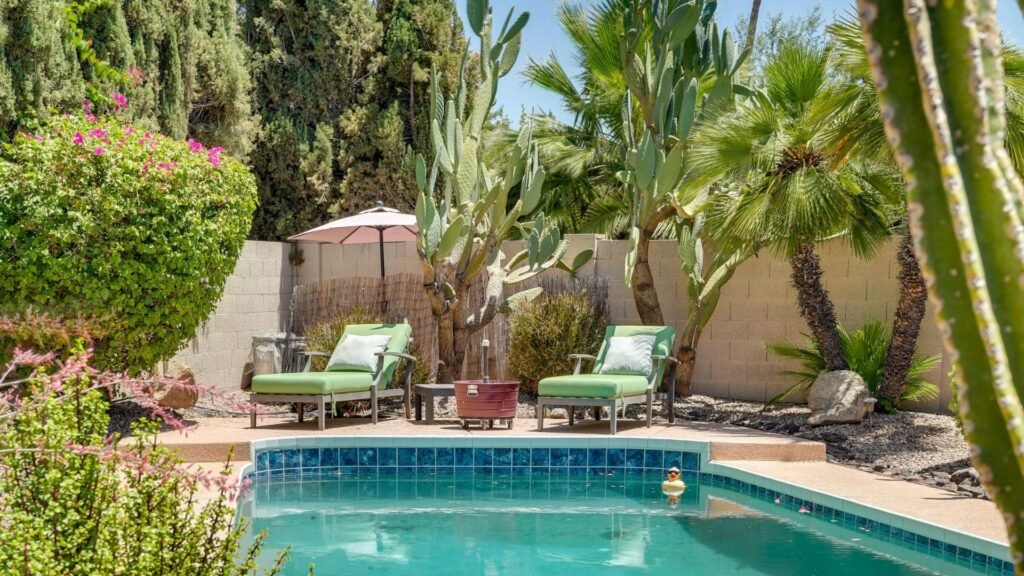Buying a vacation home is an exciting adventure. Whether you’re dreaming of a cosy cabin in the mountains or a beachfront retreat, a vacation home can offer relaxation, fun, and even potential income if you decide to rent it out. However, finding the perfect spot and making the right choice requires careful consideration. Here are some tips for buying a vacation home to help guide you through the process and ensure you make a smart investment.
Steps for Buying a Vacation Home
Determine Your Budget
Before you start looking for properties, it’s crucial to set a budget for buying a vacation home. Consider not just the purchase price but also ongoing expenses like property taxes, maintenance, insurance, and utilities. Factor in costs for potential upgrades or repairs. Make sure you have a clear understanding of what you can afford to avoid any financial strain. Establishing a budget will help narrow down your options and keep your search focused.

Choose the Right Location
Location is key when buying a vacation home. Think about what kind of experience you want. Do you prefer a serene escape in the mountains or a lively spot near the beach? Research different areas to find out which locations offer the amenities and activities you enjoy. Consider factors like climate, accessibility, and proximity to local attractions. Choosing the right location will enhance your vacation experience and can affect the property’s future resale value.
Assess the Property’s Potential
When buying a vacation home, it’s important to assess the property’s potential. Evaluate how well the home suits your needs and preferences. Consider the layout, size, and features of the home. If you plan to rent it out, think about what amenities will attract renters. A property with great potential can provide enjoyment and potential income.
Understand Local Regulations
Different locations have different regulations regarding vacation homes. Research the local laws and zoning requirements before making a purchase. Some areas may have restrictions on short-term rentals or specific rules for property maintenance. Understanding these regulations will help you avoid any legal issues and ensure you comply with local standards. It’s wise to consult with a real estate agent who knows the area well and can provide guidance on local rules.
Factor in Rental Income Potential
If you’re considering renting out your vacation home, evaluate its rental income potential. Look at similar properties in the area to understand rental rates and occupancy trends. Consider the costs associated with managing a rental property, including cleaning, maintenance, and management fees. Analyzing the potential return on investment can help you decide if renting out your vacation home is a viable option and how it might affect your overall budget.
Check the Property’s Amenities
When buying a vacation home, the amenities can make a big difference in your experience. Look for features that will enhance your stay, such as a pool, hot tub, or a well-equipped kitchen. If you plan to rent out the property, high-quality amenities can attract more guests and potentially lead to higher rental income. Assess what the property offers and how it aligns with your needs and expectations.
Work with a Local Real Estate Agent
Working with a local real estate agent can be incredibly helpful when buying a vacation home. An experienced agent familiar with the area can provide valuable insights, help you find suitable properties, and guide you through the purchasing process. Choose an agent who understands the local market and can help you make an informed decision.
Inspect the Property Thoroughly
Before finalizing the purchase, make sure to inspect the property thoroughly. Hire a professional home inspector to check for any potential issues, such as structural problems, plumbing, or electrical issues. A detailed inspection can uncover hidden problems that might affect your decision. Ensuring the property is in good condition will help you avoid unexpected repair costs and make your vacation home more enjoyable.
Plan for Ongoing Maintenance
Owning a vacation home means you’ll need to plan for ongoing maintenance. Regular upkeep is essential to keep the property in good condition and preserve its value. Consider setting up a maintenance schedule and budgeting for routine repairs and updates. If you’re not local, you might need to hire a property management company to handle maintenance and ensure the home is ready for your visits or renters.
Conclusion
Buying a vacation home can be an exciting and rewarding investment, offering a personal retreat and potential rental income. To make the process smoother and more successful, consider the following key tips: research the location thoroughly, assess your budget carefully, evaluate the property’s condition and amenities, and understand the local market trends. It’s also crucial to work with a knowledgeable real estate agent and review any legal or tax implications.

